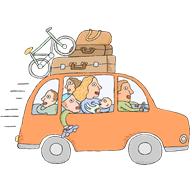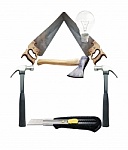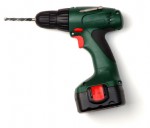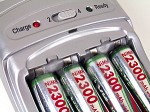Buying Green
August 19th, 2011Do you have too much stuff? In our consumer-oriented society, whether we live in the city of Spruce Grove, a smaller community like Stony Plain, or on an acreage or country estate in the County of Parkland, it’s easy to accumulate “stuff”. We might not even notice just how much stuff we’ve accumulated until it’s time to sell our homes. But what if we could train ourselves to be more mindful of everything we bring into our homes so that moving to a new house is not such a chore?
An article in the Grove Examiner, published August 12, 2011, suggests some questions to ask ourselves before we commit to buying anything. Paying attention to what we buy will save us money, save the environment, and maybe even do away with the need to move to a bigger house! Thanks to Craig and Layla Baird, “The Green Couple”, for allowing their article to be posted here in its entirety.
Things to consider prior to your next consumer purchase
Craig and Layla Baird, The Green Couple
Every time you go out to buy something, what you buy has an impact on the environment.
That purchase has an impact by the waste it produces when it is manufactured, and the waste that is produced when you use it and when you are done with it. In addition, the environmental impact of the production, transportation and consumption of the product has an effect on our planet.
This is why it is important to ask yourself the “Purchase Questions”. These questions are:
1. Does the cost of the item warrant the benefit we may receive from it?
This means that if the benefit is just an immediate gratification (such as a new pair of shoes that we really don’t need), then it is not worth the long-term cost.
2. How much will this product be used after its initial ‘neatness’ wears off?
Buying one of those dancing electric animals is a perfect example of this. It may seem neat now, but it will end up in the closet soon enough and likely long before you recoup the expense in enjoyment.
3. Can it be recycled or given away later?
If it can, it makes buying it easier because someone else can get use out of it after we no longer use it.
4. Where could this money be better spent?
If it could go to bills, mortgage, charity or anything else instead of the product, maybe it should be directed that way.
5. Why are we buying this product?
If the only reason is because we just saw it, then it is not a good buy. Impulse buys are not something we want to do. As well, if we buy it because we saw it on television, then perhaps again it is not a good buy.
Asking yourself those questions can not only save you money, but they can help you save the environment as well.
Need help finding homes for extra stuff? See my blog article “Getting Rid of Stuff”.
I’m happy to help with all your real estate needs. Call me at 780-910-9669, email me at barry@barryt.ca, or contact me here.



















